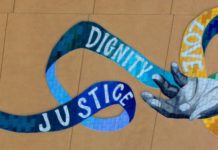MIA Survey: Ex-patients Tell of Force, Trauma and Sexual Abuse in America’s Mental Hospitals
In a MIA survey of people who had been patients in mental hospitals, nearly 500 respondents told of an experience that was often traumatic, and frequently characterized by a violation of their legal rights, forced treatment with drugs, and physical or sexual abuse. Only 17% said they were “satisfied” with the “quality of the psychiatric treatment” they received.
United Nations Report Calls for Revolution in Mental Health Care
In a new report, the United Nations Special Rapporteur on the right to health, Dr. Dainius Pūras, calls for a move away from the biomedical model and “excessive use of psychotropic medicines.”
Your Pharmacist is Tattling On You!
A CVS pharmacy recently sent me a standardized form by fax with a dire warning about one of my patients. The form was called “MEDICATION NONADHERENCE THERAPY ADVISORY” and it said: “A review of your patient’s retail and mail prescription history indicates that the patient has not obtained his or her first refill.”
The Orwellian New Digital Abilify Will Subjugate Vulnerable People Across the US
The FDA approved the prescribing and sale of a new hi-tech compliance-monitoring “antipsychotic” drug this week. A new chapter in human darkness has descended — one that is applauded by the alliance of control addicts that made it happen.
Forced Psychiatry is Torture
I am a survivor of forced psychiatry, and I bring this perspective with me as a human rights lawyer. People with disabilities have a right to be as we are and not to have our bodies and minds made over to suit other people. We alone have the right to decide whether a medical treatment will support who we are or detract from who we are, and that is why free and informed consent is the essential requirement.
The Media’s New Hashtag: #GuardianshipIsGood for Britney Spears
Recent press coverage of top star Britney Spears, who remains under a personal and professional guardianship, reflects conventional attitudes about “mental illness” that are both stigmatizing and encourage legislation that promotes forced treatment.
Feral Psychiatry: The Case of Garth Daniels
Garth Daniels, a 39-year-old Melbourne man, has been shackled for 110 days and forced to undergo ECT 94 times at three times a week against his will. Last year, his family asked me to provide a second opinion on Garth’s case. As predicted, my recommendations against continued ECT were quickly dismissed by the hospital. There are critically important issues at stake in this case.
Risk of Suicide After Hospitalization Even Higher Than Previously Estimated
New analysis of post-discharge suicide rates finds estimates 6 times higher than recent studies.
Mad Science, Psychiatric Coercion and the Therapeutic State: An Interview with Dr. David Cohen
MIA's Peter Simons interviews David Cohen, PhD, on his path to researching mental health, coercive practices, and discontinuation from psychiatric drugs.
Justina Pelletier: The Case Continues
On March 25, Joseph Johnston, Juvenile Court Justice in Boston, Massachusetts, issued a disposition order in the case: Care and protection of Justina Pelletier. The background to the case is well-known. Justina is 15 years old. Judge Johnston did not return Justina to the care of her parents, but instead granted permanent custody to the Massachusetts Department of Children and Families (DCF), with a right to review in June. The disposition order is somewhat terse and sparing in its tone, but reading between the lines, it seems clear that the court has determined that Justina either does not have mitochondrial disease or that, even if she does have mitochondrial disease, her concern about this matter is inappropriate and excessive.
It’s the Coercion, Stupid!
Both Michel Foucault and Thomas Szasz dated the beginnings of a distinct Western institutional response to madness to the late 1500s-early 1600s. But while for Foucault it started in France with the creation of the public “hôpital général” for the poor insane, for Szasz it began in England with the appearance of for-profit madhouses where upper class families shut away inconvenient relatives. Regardless of their different ideas on the beginnings of anything resembling a mental health system, both authors agree that it was characterized by the coercive incarceration of a specially labeled group.
DeJarnette Sanitarium
From Atlas Obscura: In the 1930s, hundreds of people with mental disabilities committed to the now abandoned DeJarnette Sanitarium were forcibly sterilized and experimented on by the hospital's eugenicist namesake.
Dehumanization Linked to Poorer Mental and Physical Health
A new review finds that dehumanizing language, including self-dehumanization, is connected to anxiety, depression, and disordered eating.
“Silent” Forms of Child Abuse Strongly Tied to Depression
Psychological abuse and childhood neglect are strongly associated with depression in adulthood, according to a meta-analysis of childhood trauma and depression published in this month’s issue of the Journal of Affective Disorders. “The findings clearly highlight the potential impact of the more ‘silent’ types of childhood maltreatment (other than physical and sexual abuse) on the development of depression,” the researchers conclude.
The Helping Room
Every culture has its share of individuals who break down in bewilderment. People who hallucinate, behave beyond norms, seek to die, think in strange ways.
UN to USA: Forced Treatment is Prohibited
The experience with the UN Working Group on Arbitrary Detention's visit to the US is a watershed for our work against forced psychiatry. Step by step, global and national advocacy support each other as part of a worldwide movement to abolish forced psychiatry using the UN human rights framework.
Involuntary Mental Health Commitments
The recent publicity surrounding the Justina Pelletier case has focused attention, not only on the spurious and arbitrary nature of psychiatric diagnoses, but also on the legitimacy and appropriateness of mental health commitments. It is being widely asserted that these archaic statutes are fundamentally incompatible with current civil rights standards, and the question "should mental health commitments be abolished?" is being raised in a variety of contexts.
How Do Clients Solicit Medication Changes With Psychiatrists?
Researchers examine psychiatrist-client interactions and find that clients are often left with few opportunities to make explicit requests to change their medication regimen.
UN Expert Calls for Major Shift in Suicide Prevention Efforts on World Mental Health...
On World Mental Health Day, UN expert Dainius Pūras calls for a shift away from medical solutions toward a rights-based approach to make life “more liveable.” He calls for states to address societal determinants of mental health, promoting autonomy and resilience.
Berlin Manifesto for Humane Psychiatry Released
Changing the mental health and psychosocial support system in Germany requires public debate about the ways our society should help and support people in mental crisis and with chronic mental health problems. We believe the driving force behind all help and support should be humanitarianism and respect for inalienable human rights.
Evolution or Revolution? Why Western Psychiatry Won’t Change by Incremental Steps
...but how realistic is it to expect that the biological skew of Western psychiatry can be sustainably changed one small step at a time?
Humanizing Mental Healthcare by Reducing Coercive Practices
A review of the literature demonstrates that coercive practices lack empirical support and violate human rights.
Psychiatric Diagnosis Can Lead to Epistemic Injustice, Researchers Claim
A discussion of the role of epistemic injustice in the experiences of patients diagnosed with psychiatric disorders.
How Would We Know If We Overthrew the Mental Health System?
What would it take to go about abolishing psychiatry? If we truly eliminated all the horrid practices that are currently committed by the mental health system, what would the world look like? What follows are 15 ways our society would need to change before we could be confident that we are free from the tyranny of the mental health system.
Involuntary Hospitalization More Likely With Psychosis Diagnoses and Few Resources
New study links involuntary hospitalization with psychotic diagnosis, previous involuntary hospitalization, and economic deprivation.




























